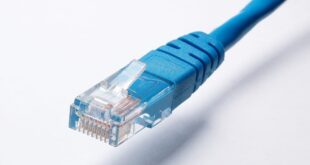Top 10 Must-Know Cybersecurity Tips for 2023
Stay Aware of Fake Emails and Other Scams
Always double-check emails and other online content that request passwords or personal information, and always ensure you are on a secure website before submitting any personal or financial information online.
Implement Strong Passwords
Create strong, long, and unique passwords for your online accounts, utilize a password manager, and avoid using the same password for different accounts.
Keep Your Computer and Devices Up to Date
Update your devices, software, and operating system as soon as possible. New updates often contain important security patches to protect against newly discovered vulnerabilities.
Use Two-Factor Authentication
Add an extra layer of security to your online accounts by implementing two-factor authentication, so that even if your password is compromised, you can still protect your account.
Be Vigilant When Using Public Wi-Fi
Be cautious when using public Wi-Fi to ensure your personal information and online accounts are protected. Only submit critical information on secure websites and avoid logging into accounts that contain sensitive data.
Monitor Your Financial Accounts
Regularly review the activity on your financial accounts and closely monitor any suspicious activity. If unauthorized activity is discovered, act quickly to minimize its impact.
Backup Your Data Regularly
To safeguard your important files and data, make sure you have regular backups stored in a secure location.
Enable Privacy Settings on Social Media Platforms
Review and manage your social media privacy settings to control who can see your posts and personal information to prevent unauthorized access.
Lock Your Devices When Not in Use
Always lock your computer and devices when not in use, and use secure passwords or biometric authentication to prevent unauthorized access.
Keep Your Antivirus Software Up to Date
Antivirus software serves as an additional layer of protection for your computer system. Ensure it is kept up to date to prevent vulnerabilities from being exploited.
As technology continues to advance, so does the sophistication of cyber attacks, making it essential to stay up to date on the best cybersecurity practices. These top 10 must-know cybersecurity tips for 2023 will help protect your online activity and privacy from threat actors.
Stay Aware of Scams:
Fake emails and social engineering attacks are still prevalent today, despite increased awareness. Before you submit any personal data or financial information online, double-check the website security and whether any sensitive or critical information is being requested.
Implement Strong Passwords:
Avoid using predictable or easily compromised passwords by making them strong, long, and unique.
Keep Your Systems and Devices Up to Date:
With cybersecurity, old vulnerabilities result in data breaches, which puts you at risk of identity theft. Regular software and solution updates are a must, so you don’t miss any fixes or patches that can improve your security.
Use Two-Factor Authentication:
Two-factor authentication adds an extra layer of security, making it more challenging for attackers to compromise your account.
Remain Attentive When Using Public Wi-Fi:
Unsecured hotspots in cafes, airports, and hotels are a honey pot for cybercriminals as it might help attackers tamper with sensitive data or introduce malware on your device via Man in the Middle (MitM) attacks.
Monitor Your Financial Accounts:
Most systems have automatic alerts that notify you of significant withdrawals, so keep a close eye on those alerts. If you detect any unauthorized activity on any accounts, respond the soonet
Backup Your Data Regularly:
Ensure you have a backup plan in place to restore your files in the event of ransomware or any other unpleasant surprise.
Enable Privacy Settings on Social Media Platforms:
Control your social media accounts by restricting your privacy settings while making use of high-level visibility based on strategic factors that are tailored per account basis.
Lock Your Devices When Not in Use:
Always lock your computers, phones, and tablets when not in use to ensure you don’t unknowingly expose sensitive data to unauthorized access. Even a few seconds matters!
Keep Your Antivirus Software Up to Date:
Periodically update retroviral software to protect against unwanted malware or similar attacks
In summary, using all of these collective security measures alongside informed internet conduct, you have boosted your chances of avoiding being targeted by cybercriminals. Be sure to stay knowledgeable about security, be adaptable, and remain ahead of attackers.
 Mind Uncharted Explore. Discover. Learn.
Mind Uncharted Explore. Discover. Learn.




